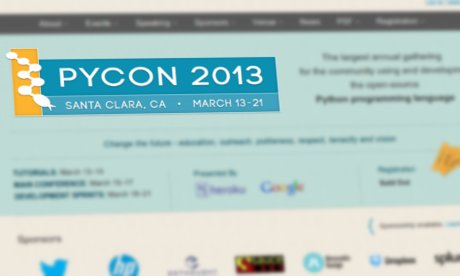I was lucky enough to attend Pycon, in Santa Clara, last week. It’s the world’s largest conference for programmers and users of the popular Python programming language (if you use Google or YouTube, watch Disney/Pixar movies or indeed, visit the Guardian’s website then you are using services written, in part, with Python).
The most widely reported news from the conference related to “dongle-gate”: two male developers made sexually suggestive jokes about “forking” and “dongles” that offended a female attendee sitting close by. She tweeted a complaint along with a photograph of those involved, one of whom subsequently lost his job. She also suffered the same fate in the ensuing backlash.
Despite this unfortunate incident, there was much to celebrate at Pycon:
- The conference was a sell out with 20% of the 2500 attendees being women (up from 5% in previous years).
- $10,000 was raised by auction for PyLadies - an organisation that encourages more women to participate in the Python community.
- $100,000 was spent by the Python Software Foundation (PSF) in the form of financial aid.
- $6,000 was raised for charity by attendees taking part in a 5 kilometer fun run.
- Volunteers ran two days of free tutorials for kids who went away with a free RaspberryPi and books.
- There were six tracks of talks covering a diverse range of subjects for all levels of programmer.
- An international group of teachers, developers and educationalists took part in an education summit.
- Every attendee was given a free RaspberryPi.
- There was much collaborative coding during the post-conference sprints.
Perhaps what is most amazing is that Pycon is organised entirely by volunteers and, although the US Pycon is the biggest, there are many other similar Pycons taking place around the world. For example, last year’s PyconUK included a teacher’s track that will be repeated again this year along with a Raspberry Jam for young coders and their parents.
Ultimately, like many other open source groups, the Python community are making vigorous efforts to replace the stereotype of programmers as anti-social, awkward and sometimes mysogynist male nerds with an inclusive movement that celebrates and promotes diversity in software engineering.
It’s a shame this wasn’t the most widely reported story from Pycon.
